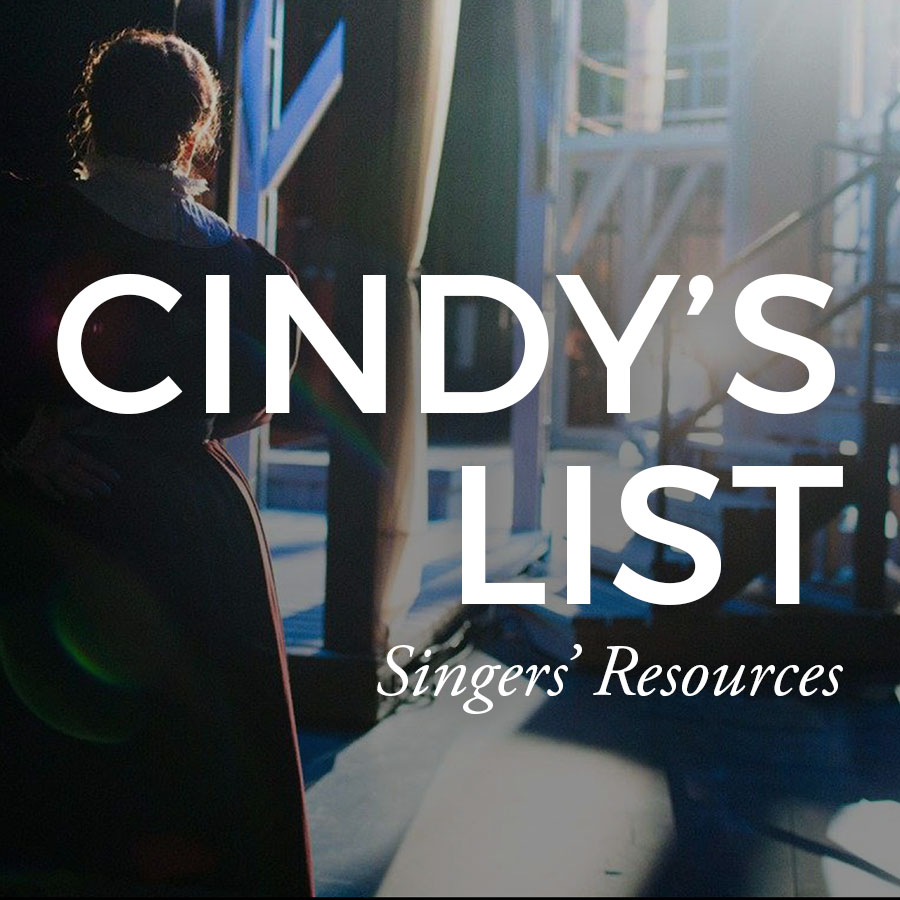Cover letters are an important part of your materials packet and should never be overlooked. Whether you are applying to an opera company, an agent, or even a Young Artist's Program, you should include a brief, professional cover letter --- right underneath your head shot.
The two most important things to put in your cover letter are a personal recommendation from someone the agent or administrator knows (get your reference to call, too, if you can) and any upcoming engagements you have. Opera company admins are often loathe to take a chance on unknown talent --- mistakes are just too costly. They feel better if they can pick up the phone and call someone who can give them the dirt on you. In fact, some admins won't hire you, no matter how much they like your singing, until they've checked you out. Agents, on the other hand, are primarily interested in your marketability. Can they make money by managing you? You have to show them that they can, and do it in a very brief note.
This can be difficult for singers who are just starting out and don’t have a lot on their resumes. If that’s the case, maybe you need to evaluate whether now is the right time for you to seek management. Generally speaking, a manager doesn’t come along until you have something that needs managing. If it's an opera company or a YAP you're applying to, you may want to consider whether you are at the right level for them right now. Generally speaking, it's a waste of your time and theirs to audition inappropriately, and you may jinx any chance you have of being heard later, when you are truly ready.
If you are ready to audition, but have no one to make a personal recommendation, what do you do? Lead off with your most impressive credits. Did you just finish a prestigious Young Artist’s Program? Have a triumph when you stepped in for the singer you were covering at a well-known company? Do you specialize in a unique repertoire? There’s how you "open the sale". It is a sale, you know. You are selling yourself!
What if you don't even have any impressive credits? Well, once again, this may be a clue that you should re-evaluate whether now is the right time to sing for this particular venue or agent. If you still think you should, try to find out what they're doing in upcoming seasons, and mention which roles you sing. Find out whether the agent needs someone like you on his roster. Look where he places most of his singers and emphasize repertoire that you think would attract him.
If you do have a personal recommendation, don’t say that he recommended the agency or company--- say he suggested that they might be interested in hearing YOU. Keep enforcing the idea that you have something to offer them, without hitting them over the head with it.
Also, do your homework! When I am contacting an agent or a company I ALWAYS look in Musical America and on their website to see who I know on their roster, or who the company is hiring in which roles. Then I call and get them to recommend me, and I put that in the cover letter. I have often recommended people to my agent and I have gotten people work through recommendations, so it is a very powerful tool. PS – make sure the person who’s making the recommendation really has the connection that you think they do. It won’t do you any good if your recommender is someone the agent or admin secretly hates!
Now, what about those upcoming engagements --- what if you don’t have a lot of upcoming engagements? What if you don’t have any? You should try to set up something before you contact the agent or admin, even if it’s just a recital at your church. Don’t lie or exaggerate outrageously --- it’s stupid and you will eventually get caught. But there’s nothing wrong with putting what you do have in the best light. This is called Public Relations. Say something like, "My performance schedule is busy; next on the list is a concert at such-and-such a place." Make it sound like you are busy, even if you aren’t. If you know it’ll be a good venue, send two tickets and invite the person to come.
Still not sure what to do? Colleagues are a great resource. Ask to see copies of their cover letters, so you can decide what you like and what will work for you. Mine are constructed something like this:
First thing: my name and the name of my connection, where I just worked with them and what we did. Second sentence: mention that I’m looking for representation or an audition, and that my connection suggested I sing for this agent or company. Mention that I’d appreciate the opportunity. (Now they know I am connected with someone they work with, that I work on the same level as this person, and that I want them to hear me --- all in two sentences).
Second paragraph: My voice type and 3-4 most recent, most impressive credits. Very brief list of my repertoire, just to give them an idea of what I do. Upcoming engagements.
Closing: presenting my materials and letting the agent or company know I have a demo tape available on request. Thank them for their time. Let them know that I will call their office in the next week and hope to set up a time for a hearing then.
The whole thing is brief, professional, and informative. It’s less than a page long --- easy to scan. If the agent or company is interested, they’ll look at the materials, maybe ask for a tape, maybe take my call when I follow up the next week as promised.









